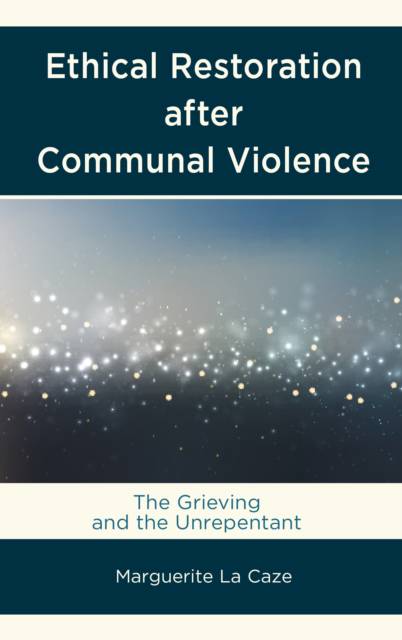
- Afhalen na 1 uur in een winkel met voorraad
- Gratis thuislevering in België vanaf € 30
- Ruim aanbod met 7 miljoen producten
- Afhalen na 1 uur in een winkel met voorraad
- Gratis thuislevering in België vanaf € 30
- Ruim aanbod met 7 miljoen producten
Zoeken
Ethical Restoration After Communal Violence
The Grieving and the Unrepentant
Marguerite La Caze
Paperback | Engels
€ 83,45
+ 166 punten
Omschrijving
Contemporary political ethics has to face the question of how to repair relations which have broken down after crimes, oppression, and political violence. The book employs the work of European and feminist philosophers, including Jacques Derrida, Albert Camus, Simone Beauvoir, Hannah Arendt, Karl Jaspers, Jean-Paul Sartre, Giorgio Agamben, Immanuel Kant, Jean Améry, Vladimir Jankélévitch, Margaret Urban Walker and Linda Radzik to engage with historical and recent cases: the post-liberation French purge, post-genocide Rwanda and post-colonial Australia and draws out the negative and positive conditions of ethical political responses in these contexts. It develops a philosophical account of ethical restoration through focusing on just punishment, guilt and shame, rebuilding political trust, forgiveness and reconciliation, remorse and atonement, and self-forgiveness.
Specificaties
Betrokkenen
- Auteur(s):
- Uitgeverij:
Inhoud
- Aantal bladzijden:
- 222
- Taal:
- Engels
Eigenschappen
- Productcode (EAN):
- 9781498526715
- Verschijningsdatum:
- 13/08/2020
- Uitvoering:
- Paperback
- Formaat:
- Trade paperback (VS)
- Afmetingen:
- 152 mm x 229 mm
- Gewicht:
- 331 g

Alleen bij Standaard Boekhandel
+ 166 punten op je klantenkaart van Standaard Boekhandel
Beoordelingen
We publiceren alleen reviews die voldoen aan de voorwaarden voor reviews. Bekijk onze voorwaarden voor reviews.







